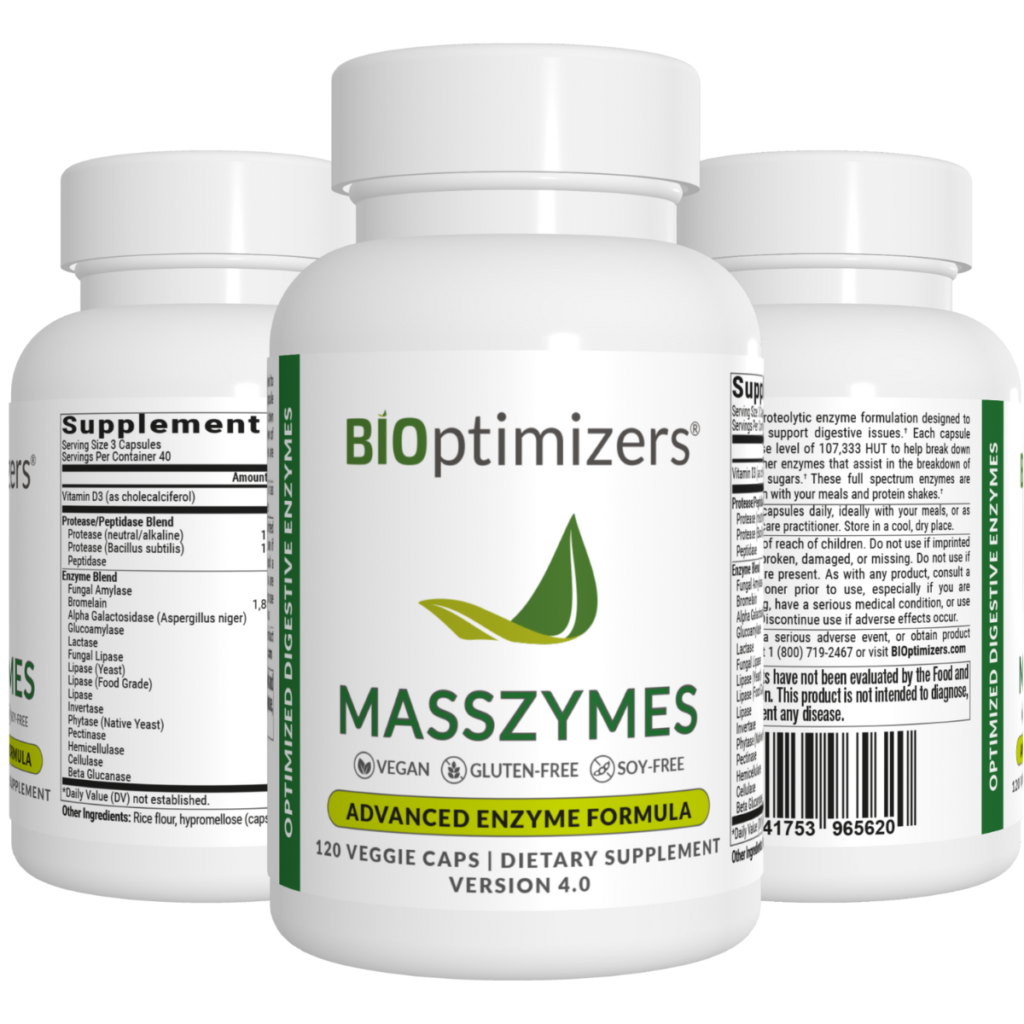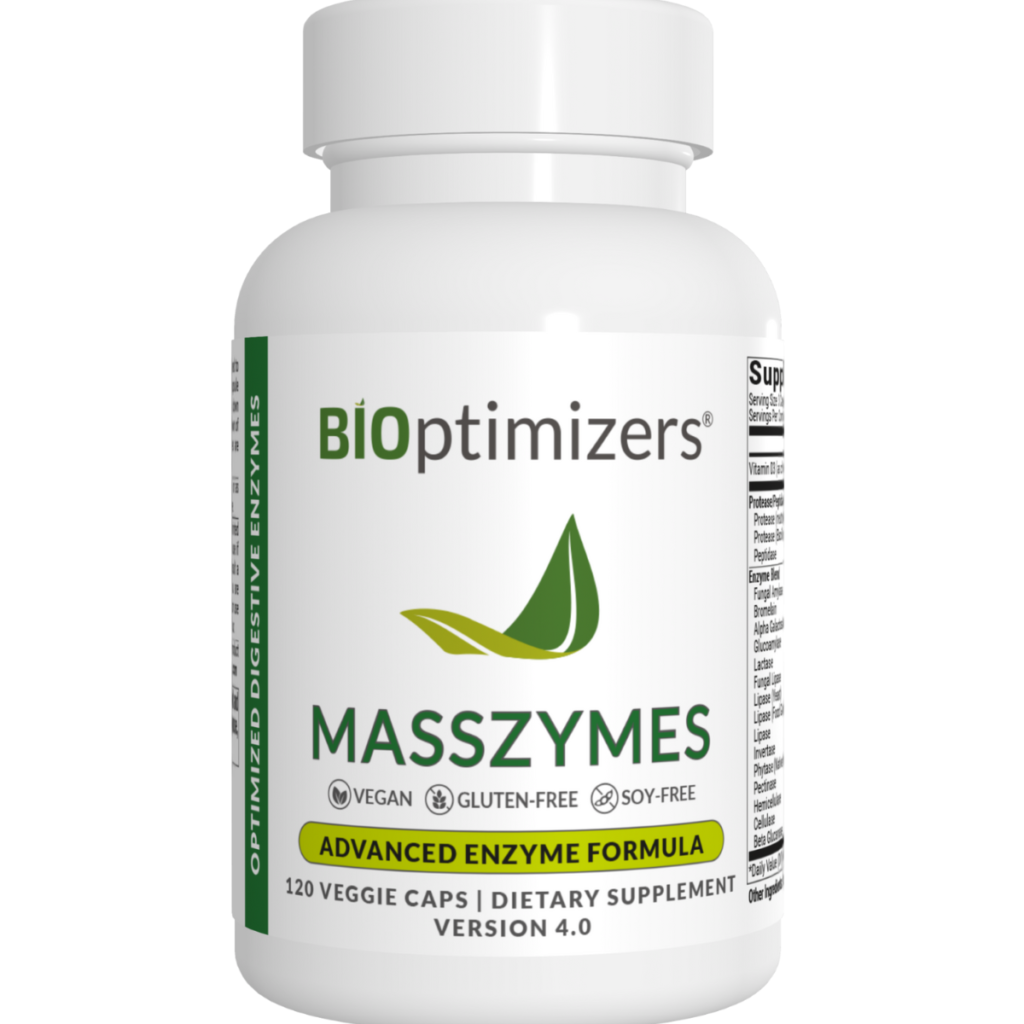Health
-
Can Magnesium Help You Lose Weight? 27 Tips for Success
Are you looking for a natural way to support your weight loss journey? Magnesium might just be the unsung hero you need.

This essential mineral plays a crucial role in various bodily functions, including metabolism, energy production, and even appetite regulation. In this article, we’ll explore 27 tips on how you can use magnesium to boost your weight loss efforts effectively. Let’s dive in!

1. Understand Magnesium’s Role
Magnesium helps regulate blood sugar levels and insulin sensitivity, both vital for weight management. Learning how magnesium affects your body can empower you to make informed choices.
2. Incorporate Magnesium-Rich Foods
Start by adding magnesium-rich foods to your diet. Spinach, almonds, black beans, and avocados are delicious options that not only provide magnesium but also crucial nutrients.
3. Opt for Whole Grains
Swap out refined grains for whole grains like quinoa, brown rice, and whole wheat bread. These foods are higher in magnesium and fiber, promoting satiety and better digestion.
4. Snack on Nuts and Seeds
Nuts and seeds, especially pumpkin and sunflower seeds, are excellent sources of magnesium. Keep a small bag handy for a healthy snack that supports your weight loss goals.
5. Stay Hydrated
Dehydration can lead to increased cravings and poor food choices. Drinking enough water supports magnesium absorption and helps manage hunger.
6. Consider Magnesium Supplements
If you’re not getting enough magnesium through your diet, consider talking to your healthcare provider about magnesium supplements. They can help you find the right dosage for your needs.
7. Balance Your Diet
Ensure your meals are balanced with protein, healthy fats, and carbohydrates. Magnesium works best in combination with other nutrients to support metabolism and weight loss.
8. Reduce Stress
Stress can lead to magnesium depletion in the body. Incorporate stress-reducing practices like yoga or meditation to help maintain your magnesium levels.
9. Improve Sleep Quality
Magnesium is known for its calming effects, which can improve sleep quality. Better sleep can lead to less late-night snacking and more energy for exercise.
10. Limit Processed Foods
Processed foods are often low in magnesium and high in sugar, which can sabotage your weight loss efforts. Focus on whole, nutrient-dense foods instead.

11. Cook with Dark Leafy Greens
Add dark leafy greens like kale and Swiss chard to your meals. They are not only rich in magnesium but also low in calories, making them perfect for weight loss.
12. Enjoy Dark Chocolate
Indulge in a small amount of dark chocolate (70% cocoa or higher) as a treat. It’s rich in magnesium and can satisfy your sweet tooth without derailing your diet.
13. Monitor Your Magnesium Levels
Consider getting your magnesium levels checked, especially if you’re feeling fatigued or struggling with weight loss. Knowing your levels can help you make necessary adjustments.
14. Use Epsom Salt Baths
Soaking in an Epsom salt bath can help relax your muscles and potentially increase magnesium absorption through the skin. Plus, it’s a great way to unwind!
15. Pair Magnesium with Vitamin D
Vitamin D and magnesium work together to support metabolism. Make sure you’re getting enough vitamin D from sunlight or supplementation along with your magnesium intake.
16. Incorporate Legumes
Beans and lentils are great sources of magnesium. They are also high in fiber, which promotes fullness and helps regulate blood sugar levels.
17. Get Moving
Regular exercise can help boost magnesium levels in the body. Aim for a mix of cardio and strength training to support weight loss and overall health.
18. Explore Magnesium-Rich Beverages
Consider magnesium-rich beverages like mineral water or smoothies made with spinach or almond milk. These can be refreshing options that contribute to your daily intake.
19. Practice Mindful Eating
Pay attention to your hunger cues and practice mindful eating. This can help you make more conscious food choices and prevent overeating, especially when magnesium is involved.
20. Stay Consistent
Consistency is key when incorporating magnesium into your weight loss plan. Make an effort to include magnesium-rich foods in your daily meals and snacks.
21. Experiment with Smoothies
Blend up a delicious smoothie with spinach, banana, and almond milk for a magnesium boost. It’s a great way to start your day or recharge in the afternoon.
22. Use a Food Diary
Keeping a food diary can help you track your magnesium intake and overall diet. This awareness can motivate you to make healthier choices.
23. Limit Caffeine and Alcohol
Both caffeine and alcohol can interfere with magnesium absorption. Moderating your intake can help maintain your magnesium levels and support weight loss efforts.
24. Include Fermented Foods
Foods like yogurt and kefir can improve gut health, which may enhance magnesium absorption. A healthy gut is essential for effective weight management.
25. Choose Healthy Fats
Incorporate healthy fats from sources like avocados and olive oil. These foods can enhance magnesium absorption and keep you feeling satisfied.
26. Stay Informed
Educate yourself about the benefits of magnesium and stay updated on the latest research. Being knowledgeable can empower you in your weight loss journey.
27. Consult a Nutritionist
If you’re unsure how to incorporate magnesium into your diet effectively, consider consulting with a nutritionist. They can provide personalized guidance tailored to your needs.

-
Symptoms of too much magnesium in adults
While magnesium is a crucial mineral for overall health, excessive intake—particularly from supplements—can lead to serious health issues.

Recognizing the symptoms of magnesium overdose, such as nausea, diarrhea, and muscle weakness, is essential for anyone considering increasing their magnesium levels. This guide explores the risks associated with magnesium overdose and provides insights to ensure safe and effective magnesium management.

42 Signs of magnesium toxicity
- Magnesium is essential for many bodily functions, including energy production, muscle contraction, and nerve transmission, but balance is key.
- The Recommended Dietary Allowance (RDA) for magnesium varies by age and gender, typically around 400-420 mg for men and 310-320 mg for women.
- While dietary magnesium is generally safe, excessive supplementation can lead to overdose and toxicity.
- The body regulates magnesium levels effectively when obtained from food, but this regulation is less effective with supplements.
- Symptoms of magnesium overdose may begin with gastrointestinal disturbances, including nausea and diarrhea.
- Severe magnesium overdose can lead to muscle weakness and fatigue, impacting daily activities and overall mobility.
- In extreme cases, magnesium overdose can cause respiratory distress and even cardiac arrest due to its effects on heart rhythm.
- The tolerable upper intake level (UL) for magnesium from supplements is set at 350 mg for adults to minimize overdose risk.
- Individuals with kidney problems are at a higher risk for magnesium overdose because their bodies may struggle to excrete excess magnesium.
- High doses of magnesium can interfere with the absorption of other essential minerals, such as calcium and potassium.
- Magnesium sulfate, often used in medical settings, can cause overdose symptoms if administered inappropriately.
- Symptoms of magnesium toxicity can also include low blood pressure, confusion, and lethargy.
- Acute magnesium toxicity can lead to hypermagnesemia, a condition characterized by dangerously high magnesium levels in the blood.
- People who consume large amounts of magnesium-rich foods typically do not experience toxicity due to the body’s natural regulation.
- Magnesium supplements can interact with certain medications, increasing the risk of adverse effects, including overdose.
- Individuals taking diuretics or proton pump inhibitors need to be cautious as these medications can affect magnesium levels and absorption.
- Dehydration can exacerbate the effects of magnesium overdose, as it may lead to further electrolyte imbalances.
- Chronic kidney disease patients should consult healthcare providers before taking magnesium supplements to prevent toxicity.
- Magnesium overdose can result from high doses of laxatives or antacids containing magnesium, often overlooked by consumers.
- It’s important to read product labels carefully, as some over-the-counter medications may contain significant amounts of magnesium.
- Regular blood tests may be necessary for individuals at risk of magnesium overdose to monitor levels and adjust supplementation accordingly.
- Magnesium toxicity is rare in healthy individuals but can occur in those with underlying health conditions or excessive supplementation.
- To reduce the risk of overdose, it is recommended to increase magnesium intake gradually and under professional guidance.
- The most common forms of magnesium supplements include magnesium oxide, citrate, and glycinate, which vary in absorption rates and potential side effects.
- Some individuals may experience gastrointestinal side effects even at recommended doses, prompting them to take higher amounts inadvertently.
- Magnesium overdose can lead to a paradoxical increase in anxiety and irritability, as the mineral is involved in neurotransmitter regulation.
- Pregnant and breastfeeding women should be particularly cautious with magnesium supplementation, as excessive amounts can affect both mother and child.
- Early recognition of overdose symptoms is crucial to prevent severe complications that may require medical attention.
- Treatment for magnesium overdose typically involves intravenous fluids and medications to stabilize electrolyte levels.
- Educating oneself on the signs and symptoms of magnesium overdose can empower individuals to make safer choices regarding supplementation.
- Increased magnesium intake can lead to a false sense of security in managing health issues, overshadowing the need for a balanced diet.
- Magnesium’s role in neuromuscular function means that overdose can lead to serious complications in muscle coordination and reflexes.
- Some herbal supplements may contain hidden sources of magnesium, increasing the risk of accidental overdose when combined with other supplements.
- Magnesium overdose can lead to kidney damage if left untreated, as the kidneys struggle to filter excess minerals.
- Individuals with a history of heart disease should monitor magnesium intake closely, as overdose can impact cardiac health.
- Magnesium citrate is often recommended for its better absorption, but it can also have a laxative effect, leading to increased magnesium intake inadvertently.
- Maintaining a balanced diet that includes magnesium-rich foods can reduce the need for supplementation and lower overdose risk.
- People with digestive disorders may have altered magnesium absorption, leading to unpredictable levels and potential overdose.
- Awareness campaigns about magnesium health often focus on deficiency, but overdose risks deserve equal attention.
- Consulting with healthcare providers before starting any new supplement regimen can help prevent both deficiency and overdose.
- Magnesium plays a role in DNA synthesis and cellular repair, making its balance critical for overall health and wellness.
- Ultimately, understanding the importance of magnesium, its benefits, and its risks can lead to better health outcomes and informed decisions.
-
Is there any reason not to take magnesium supplements?
The effectiveness of magnesium supplements remains a contentious topic in the health and wellness community.

While magnesium is essential for numerous bodily functions, the debate continues over its role in preventing various health issues. Understanding the nuances and uncertainties surrounding magnesium supplementation can help clarify its actual benefits and limitations, leading to more informed choices for individuals seeking to enhance their health. 42 Interesting Facts:
- Magnesium is crucial for over 300 biochemical reactions in the body, but its supplementation efficacy is still being studied.
- Some studies suggest that magnesium supplements may help reduce blood pressure in individuals with hypertension, while others show minimal effect.
- The relationship between magnesium and heart health is complex; some research indicates it may lower the risk of cardiovascular disease, but findings are not consistent.
- Intravenous magnesium has been used in acute settings, such as for treating eclampsia in pregnant women, but its efficacy in other conditions is debated.
- There is no conclusive evidence that magnesium supplementation can definitively prevent cardiac arrest or improve outcomes in heart failure patients.
- Some research suggests that magnesium deficiency may be linked to an increased risk of sudden cardiac death, but supplementation has not been shown to reverse this risk effectively.
- The bioavailability of magnesium varies widely among different supplement forms, affecting how well the body absorbs it.
- Common forms of magnesium supplements include magnesium oxide, citrate, and glycinate, each with differing efficacy and side effects.
- Many people believe that taking magnesium supplements is a one-size-fits-all solution for health issues, but individual needs can vary significantly.
- Some studies have shown that magnesium supplementation can help reduce migraine frequency, while others find little to no impact.
- The role of magnesium in muscle cramps and spasms is acknowledged, but research on its effectiveness as a treatment is inconclusive.
- Magnesium’s potential role in improving sleep quality remains a topic of ongoing research, with mixed results.
- Some individuals report feeling benefits from magnesium supplements, while clinical trials may show no significant improvement.
- The lack of standardization in magnesium supplement formulations can lead to inconsistent results across studies.
- Some health experts advocate for obtaining magnesium from dietary sources rather than supplements, citing safety and efficacy concerns.
- The efficacy of magnesium supplements may be influenced by factors such as age, gender, and overall health status.
- Many people do not meet the recommended daily intake of magnesium, leading to widespread supplementation without clear evidence of its necessity.
- The relationship between magnesium and mental health is complex; while some studies show benefits for anxiety and depression, results are not universally agreed upon.
- The FDA does not regulate dietary supplements as strictly as medications, raising concerns about the quality and potency of magnesium products.
- Some individuals may experience gastrointestinal side effects from magnesium supplements, including diarrhea and nausea.
- Magnesium supplementation has been studied for its potential role in managing diabetes, but findings are not consistent regarding its effectiveness in improving glycemic control.
- Some research indicates that magnesium might play a role in reducing the risk of osteoporosis, but the evidence for supplementation remains inconclusive.
- The effectiveness of magnesium in reducing symptoms of PMS has been studied, but results vary widely among women.
- Magnesium plays a role in regulating blood sugar levels, yet the impact of supplementation on insulin sensitivity is still being explored.
- Chronic stress can deplete magnesium levels, prompting some to supplement, but whether this significantly impacts stress-related health issues is under scrutiny.
- The notion that all magnesium supplements are equally effective can lead to misconceptions about their true benefits.
- The timing of magnesium supplementation may influence its effectiveness, with some studies suggesting nighttime dosing may improve sleep outcomes.
- The potential for magnesium to enhance athletic performance is debated, with some athletes swearing by its effectiveness and research yielding mixed results.
- Some studies have shown that magnesium may benefit cognitive function, but the evidence is not definitive regarding supplementation.
- Magnesium plays a role in muscle recovery post-exercise, but the extent to which supplementation aids this process is still being researched.
- Public perception often leans toward viewing supplements as inherently beneficial, leading to misconceptions about the necessity of magnesium supplementation.
- Research indicates that magnesium may help in regulating mood but lacks definitive evidence on its role as a stand-alone treatment for mood disorders.
- Some individuals may rely on supplements without addressing dietary deficiencies, leading to an imbalance in nutrient intake.
- The effectiveness of magnesium supplements may diminish when taken with certain medications or other supplements that interfere with absorption.
- Some studies suggest that magnesium may help in reducing the severity of asthma symptoms, but supplementation’s efficacy in this regard is still debated.
- The use of magnesium in treating preeclampsia is well-established, yet broader claims for its efficacy in other conditions remain uncertain.
- Individuals with gastrointestinal disorders may have difficulty absorbing magnesium from supplements, leading to inconsistent results.
- The growing interest in magnesium supplementation has led to an influx of products, but not all are backed by robust clinical evidence.
- Some researchers argue that magnesium’s benefits are often overstated, with the need for more rigorous clinical trials to establish efficacy.
- Misunderstandings about the role of magnesium in health can lead individuals to over-rely on supplements rather than holistic dietary changes.
- Magnesium’s involvement in energy production means that deficiencies can affect overall energy levels, but supplementation’s role in boosting energy is unclear.
- The debate around magnesium supplementation underscores the importance of personalized nutrition, as what works for one individual may not be effective for another.

-
Can you get all the magnesium you need from food?
While magnesium is vital for various bodily functions, understanding the benefits of obtaining this mineral through dietary sources rather than supplements can greatly enhance overall health.

Foods rich in magnesium not only provide this essential nutrient but also come packed with other vital nutrients and fiber, contributing to better overall well-being. Let’s explore the fascinating facts about magnesium-rich foods and the implications of supplementation. Interesting Facts:
- Magnesium is involved in over 300 enzymatic reactions in the body, making its presence crucial for overall health.
- Dark leafy greens, such as spinach and kale, are among the richest dietary sources of magnesium.
- One cup of cooked spinach contains approximately 157 mg of magnesium, providing nearly 40% of the recommended daily intake for adults.
- Nuts and seeds, especially almonds and pumpkin seeds, are excellent sources of magnesium, with a handful providing significant amounts.
- A quarter cup of pumpkin seeds can contain around 190 mg of magnesium, making them one of the highest sources.
- Whole grains like brown rice, quinoa, and oats are not only rich in magnesium but also provide essential fiber that supports digestive health.
- A cup of cooked quinoa contains about 118 mg of magnesium, along with a complete protein profile.
- Legumes, including black beans and lentils, are rich in magnesium and offer additional benefits from their high protein content.
- Just one cup of cooked black beans can provide around 60 mg of magnesium, along with essential vitamins and minerals.
- Avocados are a surprisingly rich source of magnesium, with one medium avocado containing about 58 mg.

- Dark chocolate, particularly varieties with at least 70% cocoa, is not only delicious but also an excellent source of magnesium, providing about 64 mg per ounce.
- Dairy products like yogurt and milk also contribute magnesium, with one cup of yogurt containing around 30-40 mg.
- The magnesium content of fruits is generally lower, but bananas and figs do provide some of this essential mineral.
- One medium banana contains about 32 mg of magnesium, along with potassium and vitamin B6.
- Cooking methods can affect magnesium levels in food; boiling can cause magnesium to leach into the water, whereas steaming helps retain it.
- Magnesium from food sources is generally better absorbed by the body compared to supplements, which may have varying bioavailability.
- Some studies have shown that higher dietary magnesium intake is associated with a lower risk of developing chronic diseases.
- Foods high in magnesium may help reduce the risk of heart disease by improving arterial function and lowering blood pressure.
- A diet rich in magnesium has been linked to improved bone health, as this mineral plays a role in calcium metabolism and bone density.
- Magnesium is essential for energy production, and obtaining it from food can lead to more sustained energy levels throughout the day.
- Many individuals do not meet the recommended dietary allowance (RDA) for magnesium, often due to diets low in whole foods.
- The RDA for magnesium is approximately 400-420 mg for men and 310-320 mg for women per day, varying by age and life stage.
- Magnesium supplements can sometimes cause gastrointestinal side effects, such as diarrhea, especially when taken in high doses.
- Certain medications, such as proton pump inhibitors and diuretics, can lead to magnesium deficiency, making dietary sources even more important.
- A balanced diet rich in magnesium can enhance mood and cognitive function, contributing to better mental health.
- Magnesium-rich foods offer additional nutrients that work synergistically, promoting overall health beyond just magnesium intake.
- Some foods, like refined grains and processed snacks, are low in magnesium due to the removal of nutrient-rich parts during processing.
- While supplements can be beneficial for certain individuals with diagnosed deficiencies, they should not be the primary source of magnesium.
- Individuals with specific health conditions, such as gastrointestinal disorders, may require higher magnesium intake from food sources.
- Magnesium plays a role in regulating blood sugar levels, making it a vital nutrient for individuals with diabetes or insulin resistance.
- Many leafy greens are also high in antioxidants, which work in tandem with magnesium to support overall health.
- Magnesium absorption can be affected by dietary factors, such as the presence of phytates in grains and legumes, which can bind to minerals.
- Fermented foods, such as kimchi and sauerkraut, can enhance magnesium absorption by promoting gut health.
- Magnesium-rich foods can have a calming effect on the nervous system, helping to reduce anxiety and promote relaxation.
- Cooking methods like roasting or grilling can concentrate the magnesium content in certain foods, such as vegetables.
- The American diet has shifted towards higher processed food intake, leading to a decrease in magnesium consumption over the years.
- Some individuals might benefit from magnesium-enriched foods, which can provide a more balanced approach to increasing intake.
- Regularly consuming magnesium-rich foods can contribute to better sleep quality, as magnesium is known to support relaxation.
- Magnesium plays a role in muscle contraction and relaxation, making it important for athletic performance and recovery.
- A magnesium-rich diet may aid in the prevention of migraines, as it has been shown to help regulate neurotransmitters involved in headache mechanisms.
- Increasing magnesium intake through food sources is a proactive approach to enhancing overall health and preventing deficiencies.
- Educating oneself about magnesium-rich foods can empower individuals to make healthier dietary choices that benefit their long-term well-being.
-
What are the FDA recommendations for magnesium?
As research evolves, clinical evidence increasingly supports the role of magnesium in mental health treatment. This mineral’s potential benefits in alleviating symptoms of various mental disorders highlight the need for further exploration in clinical settings. The FDA provides specific recommendations for magnesium intake based on age and gender to ensure adequate health benefits. The recommended daily allowances (RDAs) are as follows:
For individuals aged 51 and older, the recommendation remains at 420 mg for males and 320 mg for females.
For adolescents aged 14-18 years, males should aim for 410 mg and females 360 mg of magnesium.
Young adults aged 19-30 years are advised to consume 400 mg for males and 310 mg for females.
Adults aged 31-50 years should increase their intake to 420 mg for males and 320 mg for females.

- Several clinical trials have demonstrated the efficacy of magnesium supplementation in reducing depressive symptoms.
- A meta-analysis of studies found significant improvements in anxiety levels among participants who took magnesium supplements.
- Magnesium is considered a safe and low-risk option for mental health support, with few reported side effects.
- Some healthcare providers are incorporating magnesium testing into routine assessments for patients with mood disorders.
- Research indicates that higher magnesium intake is associated with a lower prevalence of depression and anxiety in the general population.
- Magnesium supplementation may enhance the effectiveness of conventional antidepressant therapies.
- Some studies suggest that magnesium can improve overall mental well-being and quality of life.
- The use of magnesium in mental health treatment is gaining traction among integrative and holistic health practitioners.
- Clinical guidelines are beginning to recognize magnesium as a potential adjunct treatment for mood disorders.
- Despite the promising evidence, more large-scale randomized controlled trials are needed to establish definitive guidelines for magnesium use in mental health treatment.

-
Which magnesium for brain health? Get Your Brain Healthy
Magnesium is not only essential for mental health but also offers neuroprotective benefits. By supporting neuronal health and cognitive function, magnesium plays a critical role in maintaining a healthy brain throughout life. Interesting Facts:

- Magnesium is involved in over 300 biochemical reactions in the body, many of which are crucial for brain health.
- Research has shown that magnesium can protect against neurodegenerative diseases, such as Alzheimer’s and Parkinson’s.
- Magnesium aids in the regulation of synaptic plasticity, which is vital for learning and memory.
- Low magnesium levels are associated with cognitive decline and increased risk of dementia.
- Magnesium helps to stabilize neuronal membranes, preventing excitotoxicity and protecting against cell death.
- Some studies suggest that magnesium can enhance cognitive function and improve memory performance.
- Magnesium’s anti-inflammatory properties may contribute to its neuroprotective effects.
- Increased dietary magnesium intake has been linked to a lower risk of developing cognitive impairment.
- Magnesium can influence the release of brain-derived neurotrophic factor (BDNF), which supports neuron growth and survival.
- Ensuring adequate magnesium levels may be particularly important for aging populations to maintain cognitive health.

-
Can magnesium supplements help with anxiety and stress?
Magnesium plays a pivotal role in regulating the body’s response to stress. By influencing cortisol levels and promoting relaxation, this mineral can be a powerful ally in managing stress and anxiety.

10 Interesting Facts:
- Magnesium acts as a natural relaxant, helping to calm the nervous system and reduce anxiety levels.
- High cortisol levels, often associated with chronic stress, can lead to magnesium depletion in the body.
- Supplementing with magnesium can help lower cortisol levels, promoting a more balanced stress response.
- Stress can deplete magnesium levels, creating a cycle of increased anxiety and further depletion.
- Magnesium helps regulate the body’s fight-or-flight response, mitigating the impact of stress on mental health.
- Individuals experiencing high levels of stress may benefit from magnesium-rich foods, such as leafy greens and legumes.
- Magnesium can improve sleep quality, which is essential for effective stress management.
- Research shows that magnesium can enhance resilience to stress by stabilizing mood and emotional responses.
- Regular physical activity can improve magnesium levels, helping to combat stress effectively.
- Mindfulness practices, combined with magnesium supplementation, can significantly reduce perceived stress levels.

-
Can low magnesium cause depression and anxiety?
Low magnesium levels have been linked to increased symptoms of anxiety and depression

Magnesium is a crucial player in the production and regulation of neurotransmitters, particularly serotonin. This essential mineral not only supports mood stability but also enhances overall mental well-being. Understanding its role can shed light on mental health and its underlying biochemical processes.

10 Interesting Facts:
- Serotonin, known as the “feel-good” neurotransmitter, is significantly influenced by magnesium levels in the body.
- Approximately 60% of the body’s magnesium is found in bones, while the rest is distributed in muscles and soft tissues, crucial for neurotransmitter synthesis.
- Low magnesium levels have been linked to increased symptoms of anxiety and depression.
- Magnesium deficiency can disrupt the balance of neurotransmitters, leading to mood disorders.
- Foods rich in magnesium, such as dark chocolate and nuts, can help boost serotonin production naturally.
- The brain requires a constant supply of magnesium to maintain its neurotransmitter balance, particularly during periods of stress.
- Magnesium influences glutamate, another neurotransmitter that plays a role in mood regulation and cognitive function.
- Research has shown that magnesium supplementation can improve mood in individuals with major depressive disorder.
- Magnesium acts on the NMDA receptor, which is involved in synaptic plasticity and memory function.
- Regular intake of magnesium-rich foods may lead to long-term improvements in mood and emotional health.
-
MassZymes 4.0 Review: The Complete Guide to Boosting Digestive Health
MassZymes has gained significant attention as one of the most powerful enzyme supplements on the market. In this review, we’ll explore everything you need to know: What is MassZymes? Who created it? What ingredients are inside? Where to buy it? Benefits, usage, potential side effects, and more.

What is MassZymes?
MassZymes 4.0 is an advanced digestive enzyme supplement designed to aid in the breakdown and absorption of proteins, carbs, and fats. Its formula boasts up to 100,000 HUTs of protease per capsule, making it one of the most potent enzyme supplements available, particularly for those looking to maximize nutrient absorption and improve gut health.
Who Created MassZymes?
MassZymes is produced by BiOptimizers, a reputable company co-founded by Matt Gallant and Wade Lightheart. Both Gallant and Lightheart have extensive backgrounds in fitness, biohacking, and wellness, aiming to provide high-quality supplements to support optimal digestive health, energy, and performance.

MassZymes Ingredients
The ingredients in MassZymes are carefully selected to maximize digestive enzyme activity, including:
- Protease (100,000 HUT): Helps break down protein into amino acids.
- Amylase: Aids in breaking down carbohydrates.
- Lipase: Facilitates fat breakdown for optimal absorption.
- Bromelain and Papain: Natural enzymes from pineapple and papaya that enhance protein digestion.
- Lactase: Helps digest lactose, making it ideal for those with lactose sensitivity.
Each ingredient in MassZymes plays a role in enhancing digestive function, enabling users to absorb nutrients more effectively.
Where to Buy BiOptimizers MassZymes
MassZymes is available for purchase on BiOptimizers’ official website at masszymes.com. This is the most secure way to ensure product authenticity, as buying directly from the website also gives you access to their customer support and a money-back guarantee if you’re not satisfied.

Benefits of MassZymes
MassZymes offers numerous potential benefits, especially for those with digestive issues or athletes looking to optimize muscle recovery. Some of the key benefits include:
- Enhanced Protein Absorption: With the high protease content, MassZymes helps break down proteins, maximizing amino acid absorption.
- Improved Digestive Health: It alleviates symptoms like bloating, gas, and constipation by helping break down food more effectively.
- Increased Energy Levels: Improved nutrient absorption supports higher energy levels and overall wellness.
- Optimized Muscle Recovery: Athletes may benefit from quicker muscle repair and reduced soreness due to better protein digestion.
How to Use MassZymes
For best results, take 1-3 capsules with each meal, depending on the meal’s protein content and your individual needs. Those with heavy or high-protein meals may benefit from taking up to 5 capsules, though it’s best to consult a healthcare provider for personalized advice.
Potential Side Effects
MassZymes is generally safe for most users, as it’s made from high-quality, natural ingredients. Some individuals may experience mild digestive discomfort, such as gas or cramping, especially if taken in high doses. As with any supplement, if you have any underlying health conditions or are on medication, consult a healthcare professional before use.

Conclusion
MassZymes 4.0 by BiOptimizers is a powerful digestive enzyme supplement ideal for anyone looking to improve their digestion, protein absorption, and overall health. With its potent ingredients and high enzyme activity, it stands out among other digestive aids, especially for athletes and those with specific digestive needs.
Frequently Asked Questions (FAQ)
- What makes MassZymes unique? The high protease content (100,000 HUT) per capsule makes it one of the most potent options for maximizing protein absorption.
- Can I take MassZymes with other supplements? Yes, but consult a healthcare provider to ensure compatibility with other supplements.
-
Best magnesium supplement for sleep
Magnesium plays a crucial role in the regulation of neurotransmitters and melatonin production, both of which are critical for sleep

If you’re struggling with poor sleep, stress, or muscle cramps, you might be overlooking an essential nutrient—magnesium. In fact, magnesium plays a critical role in over 300 biochemical processes in your body, yet many of us are deficient in this mineral. Enter Magnesium Breakthrough, a comprehensive magnesium supplement by BiOptimizers that combines seven different forms of magnesium to deliver the ultimate health boost.
What is Magnesium Breakthrough?
Magnesium Breakthrough isn’t your average supplement. While most magnesium products only offer one or two forms of the mineral, Magnesium Breakthrough contains seven distinct types:
- Magnesium Citrate – Promotes healthy digestion
- Magnesium Bisglycinate – Supports muscle relaxation and quality sleep
- Magnesium Malate – Improves energy production
- Magnesium Orotate – Supports cardiovascular health
- Magnesium Taurate – Enhances heart function
- Magnesium Aspartate – Assists in nerve function
- Magnesium Chelate – Boosts bioavailability for maximum absorption
Key Benefits of Magnesium Breakthrough
1. Improves Sleep Quality
Many users report a significant improvement in their sleep after using Magnesium Breakthrough. This is because magnesium helps regulate neurotransmitters and melatonin, the hormone responsible for your sleep-wake cycle. If you find yourself waking up multiple times during the night, magnesium supplementation could help you achieve deeper, more restful sleep.
2. Reduces Stress & Anxiety
Often called the “anti-stress mineral,” magnesium plays a role in controlling cortisol levels, which is the hormone that spikes during stressful situations. Taking Magnesium Breakthrough can help you feel calmer, more centered, and reduce those feelings of anxiety that sneak up on you during the day.
3. Supports Muscle Recovery
Athletes and those with active lifestyles can especially benefit from magnesium’s ability to support muscle function. Magnesium helps reduce muscle cramps and improves recovery after exercise by facilitating muscle relaxation.
4. Enhances Cognitive Function
Magnesium is crucial for brain health, improving memory, focus, and even learning abilities. Those who are looking to stay sharp and focused will appreciate the cognitive benefits of regular magnesium supplementation.
5. Boosts Cardiovascular Health
Several types of magnesium in Magnesium Breakthrough, such as magnesium taurinate, are linked to better heart health. They help regulate blood pressure, support heart rhythms, and improve overall cardiovascular function.
Why Magnesium Breakthrough Stands Out
- Full-Spectrum Magnesium: Most supplements only contain one or two types of magnesium. With seven different forms, Magnesium Breakthrough is designed to meet all your body’s magnesium needs.
- No Fillers or Synthetics: Unlike many other supplements, Magnesium Breakthrough is made with all-natural ingredients, free from synthetic fillers and additives.
- Better Absorption: This supplement is highly bioavailable, meaning your body can absorb and use it efficiently, ensuring you’re getting the maximum benefit from every dose.






















